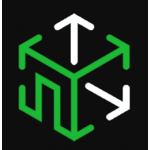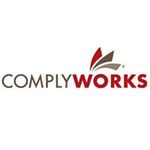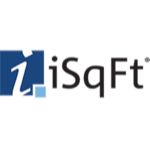List of Best Contractor Management Software
Showing 10 of 43 productsPapaya Global is an innovative global payroll and workforce management platform that simplifies and streamlines the complexities of managing a global workforce. With an intuitive and user-friendly interface, Papaya Global offers businesses of all siz...Read Papaya Global Reviews
Donesafe is a leading software solution designed to streamline and simplify workplace safety and compliance. With its user-friendly interface and robust features, Donesafe empowers organizations to manage all aspects of safety and compliance in one p...Read Donesafe Reviews
Contractor Compliance is a solution that simplifies the complex and ever-evolving world of contractor management. It is designed to help businesses streamline their processes and ensure compliance with regulations, insurance requirements, and trainin...Read Contractor Compliance Reviews
PlanHub is a project management solution for businesses of all sizes. With intuitive features and easy-to-use tools, PlanHub streamlines your project organization, task assignment, and team collaboration. Say goodbye to chaotic project management and...Read PlanHub Reviews
CompanyCam is a visual communication and project management software designed specifically for construction, remodel, and service companies. With its user-friendly interface and seamless integration with other tools, CompanyCam streamlines workflows...Read CompanyCam Reviews
SnapSuite is a is a software designed to enhance your business operations. With its advanced features and user-friendly interface, SnapSuite simplifies tasks and boosts productivity. Say goodbye to complicated processes and hello to streamlined effic...Read SnapSuite Reviews
Beakon, is a solution for streamlining your business operations. With its user-friendly interface features, Beakon helps businesses of all sizes manage tasks, collaborate with team members, and track progress effortlessly. Say goodbye to overwhelming...Read Beakon Reviews
ComplyWorks Compliance is a trusted name in compliance management solutions. With a proven track record of ensuring regulatory adherence and streamlining processes, ComplyWorks is the go-to choice for businesses looking to maintain compliance and mit...Read ComplyWorks Compliance Reviews
iSqFt is a software designed to simplify and streamline the construction bidding process. With its user-friendly interface features, iSqFt empowers construction professionals to efficiently manage bids, project documents, and communication with subco...Read iSqFt Reviews
ToolWatch is a solution for managing your construction tools and equipment. Say goodbye to lost or damaged equipment, wasted time and money. With ToolWatch, you can easily track, organize, and maintain your inventory for maximum efficiency and produc...Read ToolWatch Reviews
- What Is Contractor Management Software?
- Top Reasons Why Businesses Need Contractor Management Software?
- What Are the Top Key Features of Contractor Management Software?
- What Are the Top Benefits of Contractor Management Software?
- What Are the Steps to Choose the Right Contractor Management Software?
- What Are the Types of Contractor Management Software for Different Industries?
- What Are the Technology Trends for Best Contractor Management Software?
- What Are the Deployment Options for Contractor Management Software?
What Is Contractor Management Software?
Contractor management software refers to a specific category of software designed to assist organizations in effectively managing their interactions and collaborations with independent contractors or individuals who are self-employed. The program facilitates the management of contractor information, payment processing, background investigation of contractors, compliance tracking, and the management of outsourced projects for enterprises.
Contractor software commonly incorporates functionalities like as onboarding and vetting procedures, performance monitoring, automated timesheets, and project management capabilities. This software facilitates the efficient allocation of jobs, project management, and adjustment of contractor schedules inside businesses.
Additionally, the program facilitates effective communication, scheduling, and invoicing for enterprises concerning their contractors. The use of this system enhances operational efficiency by optimizing workflows and automating administrative procedures, resulting in significant savings in terms of time, financial resources, and human effort.
For instance, it possesses the capability to promptly identify concerns, notify relevant parties, and serve as a reminder of adherence to regulatory requirements. Contractor management software facilitates the adherence of companies to optimal contractor onboarding procedures, streamlines the process of documentation and document storage, and enables secure payment transactions with minimal exertion.
Ultimately, this technology empowers firms to monitor crucial performance metrics in real-time and discern patterns in contractor conduct.
Top Reasons Why Businesses Need Contractor Management Software?
1. The implementation of streamlined onboarding processes for contractors results in time savings for firms in the long term.
2. The system automates the process of conducting background checks and verifying certifications, thereby ensuring adherence to regulatory requirements.
3. This feature provides businesses with the ability to gain insight into the overall performance of contractors by centralizing the collection and storage of contractor data.
4. The payment process is automated to guarantee that contractors receive their payments promptly.
5. One way to mitigate unnecessary risks is by implementing pre-established parameters and procedures for the engagement and management of contractors.
6. The provision of precise and timely invoicing capabilities serves to prevent the occurrence of duplicate payments and anomalies between invoices.
7. The primary objective is to ensure that firms adhere to statutory obligations about work permits, local labor laws, taxation, and other regulatory frameworks.
8. The individual oversees the adherence to audit regulations by maintaining comprehensive records of contractor activity and evaluating their performance.
9. One of the key benefits of implementing this measure is the enhancement of data privacy and security through the prevention of illegal access to contractor data.
10. The role involves the organization and monitoring of inspection, assessment, and conflict resolution procedures.
11. The system monitors the duration of contracts to optimize the process of contract renewal and termination.
12. Enhances the exchange of information and promotes effective communication between the business and contractor teams.
13. The platform facilitates the automation of contractor payment processes and the consolidation of contractor records, hence providing support to enterprises.
14. The implementation of this policy provides firms with an increased level of authority and oversight over their contracted staff.
15. The implementation of this solution enhances the visibility and efficiency of contractor management procedures.
What Are the Top Key Features of Contractor Management Software?
1. Onboarding and Offboarding Capabilities: The utilization of contractor management software facilitates the streamlined processes of contractor onboarding and offboarding, resulting in enhanced efficiency. This encompasses the automation of contract creation, the generation and allocation of access credentials, and the facilitation of communication among all involved parties.
2. Robust Compliance Tracking: The implementation of this measure guarantees adherence to industry rules, regulations, and internal corporate policies. General contractor software additionally facilitates the provision of timely updates to contractors regarding industry-related modifications.
3. Reporting: The platform offers extensive reporting and analytical dashboards that encompass all contractors and contract-related operations.
4. Automated Contract Generation: The implementation of this technology results in the automation of document processing procedures, hence yielding substantial time savings.
5. Time and Attendance Tracking: This functionality facilitates the ability of administrators to monitor and record many aspects such as time and attendance, budget use, contractor bills, and the duration dedicated to individual tasks.
6. Vendor Management Capabilities: This particular attribute serves to guarantee that all contractors are operating with optimal efficiency and adhering to the financial limitations set forth by the organization.
7. Invoice and Payment Management: The implementation of streamlined invoicing, tracking, and payment processes ensures efficient financial operations and timely disbursement of funds to contractors.
8. Task Management: This functionality facilitates enhanced task and assignment management, enabling contractors to effectively monitor and manage their job progress.
9. Regulatory Support: The utilization of contractor software for small businesses ensures that the software adheres to pertinent laws and regulations.
10. Security: This element guarantees the security of any confidential information about contractors, projects, and operations.
What Are the Top Benefits of Contractor Management Software?
1. Improved Visibility: Contractor management software facilitates the consolidation of papers and information about contractors and external people inside a single, centralized repository. This aids in the maintenance of precise monitoring and enhanced visibility into activities and records.
2. Streamlined Processes: The best contractor software enables firms to automate several common procedures, including onboarding, billing, and timesheet submission. This automation facilitates the management of workload and enhances operational efficiency by streamlining operations.
3. Improved Compliance: The best contractor management software facilitates the establishment of regulations and procedures within firms, enabling them to maintain compliance with evolving industry and regulatory standards. This proactive approach aids in mitigating potential legal complications in the future.
4. Improved Security: Top contractor management software enhances organizational security by monitoring the access and actions of contractors and external staff, thereby safeguarding information against illegal access or exploitation.
5. Better Resourcing: General contractor construction software facilitates the expeditious and effortless identification of proficient and skilled contractors, enabling firms to efficiently and promptly recruit suitable personnel for certain positions. This enhances the capacity to swiftly and effectively locate and employ the most suitable individuals.
What Are the Steps to Choose the Right Contractor Management Software?
1. Identify your needs: Begin by analyzing your business operations and objectives, then identify the requisite features and functionalities required in a contractor management software system. Analyze the needs to ascertain the extent and magnitude of the process, as well as the varying levels of access needed by different users.
2. Research potential solutions: In light of the defined requirements, it is recommended to undertake a comprehensive investigation of the contractor software solutions that are now available in the market. Conduct a thorough examination of the characteristics and advantages associated with each solution, peruse relevant evaluations, engage in discussions with existing users, and seek information regarding price details.
3. Determine compatibility: It is imperative to ensure that the chosen general contractor software is compatible with the existing hardware and software infrastructure. This step is crucial in ensuring the seamless operation of your newly implemented system, as it mitigates any potential compatibility conflicts that may arise between the two systems.
4. Evaluate costs: Conduct a comprehensive assessment of the overall expenses associated with the ownership and operation of the contractor software for small businesses to ascertain its compatibility with your financial resources. It is imperative to do a comprehensive evaluation of the expenses related to licensing, implementation, training, user support, and any other pertinent charges to ascertain their reasonableness and compatibility with the allocated budget.
5. Create a testing plan: Formulate an all-encompassing testing strategy to ensure the optimal functionality of the best contractor software that is intended for procurement. It is imperative to evaluate the dependability, scalability, security, and usefulness of the system before its selection.
6. Get user feedback: Engage in a discourse regarding the selection method with the individuals who are anticipated to utilize the best contractor management software. If feasible, it is advisable to choose team members to do a trial evaluation of the system before reaching a definitive conclusion.
7. Make the final selection: After completing a comprehensive assessment and engaging in deliberations with a multidisciplinary group, proceed to make the ultimate decision. It is imperative to carefully select software that aligns with one's specific requirements and effectively facilitates the management of processes in an optimized manner.
What Are the Types of Contractor Management Software for Different Industries?
Various sectors utilize different types of contractor management software.
1. Construction contractor management software: This software is a distinct category of contractor management software that has been specifically tailored to meet the unique needs and requirements of the construction industry. The software offers functionalities that facilitate the management of personnel and subcontractor monitoring, project management, job scheduling, estimating, and payment processing for enterprises.
2. IT contractor management software: This particular program is employed to effectively oversee the IT personnel and external contractors who operate beyond the confines of the organization. The software provides a range of functionalities including time-tracking, project management, performance monitoring, and invoice processing.
3. Manufacturing contractor management software: This particular software is specifically engineered to facilitate the management of the employees within a manufacturing enterprise. The software provides a range of functionalities including work tracking, skills management, time-tracking, and performance management.
4. Professional services contractor management software: This particular program is specifically developed to assist professional service providers in effectively managing their personnel, scheduling, and project-related activities. The software provides several functionalities, including job scheduling, online time-tracking, invoicing, and billing.
5. Third-party logistics contractor management software: This particular software is specifically tailored for firms engaged in the management of third-party logistics services. The platform provides several functionalities including the ability to track shipments, analyze shipment costs, process invoices, and track shipments in real-time.
What Are the Technology Trends for Best Contractor Management Software?
1. Automation: The significance of automation in contractor management software is steadily growing. Automation enables the implementation of optimized procedures, such as the onboarding process, hence enhancing productivity and diminishing the amount of time allocated to manual duties.
2. Cloud-Based Solutions: Similar to other operational procedures, there is a growing trend in the adoption of cloud-based solutions for the management of contractors in commercial settings. Cloud-based solutions offer enterprises the opportunity to effectively and efficiently manage their contractor workforce, while also enabling convenient access from any location.
3. Integration: The utilization of the best general contractor software with integration capabilities can enhance an organization's ability to effectively oversee and optimize various duties associated with the contractor workforce. This includes functionalities such as the capacity to monitor and oversee contractor performance, document certificates, and monitor and report hours.
4. Security: The increasing reliance of companies on contractors necessitates the consideration of security requirements in the selection process of general contractor scheduling software. Organizations ought to prioritize the acquisition of software that possesses robust security measures, including safe access protocols, data encryption capabilities, and physical security elements that align with their unique requirements.
5. Reporting: The capacity to furnish comprehensive assessments regarding the performance and adherence of contractors is progressively gaining significance inside contemporary corporations. The provision of configurable reporting options inside contractor management software is essential for firms to obtain the necessary data and actionable insights required for making educated business choices.
What Are the Deployment Options for Contractor Management Software?
The deployment options for contractor management software exhibit variability contingent upon the vendor and software type. However, the two prevailing deployment methodologies encompass.
1. SaaS (Software as a Service): This particular deployment option necessitates no physical installs of hardware as the software is hosted on the servers of the vendor and is provided as a service through the internet. This particular strategy is particularly well-suited for individuals who need a rapid and effortless setup process, while also desiring to avoid concerns related to software upkeep and hardware installation.
2. On-Premise: This deployment alternative necessitates the installation of the program on the customer's hardware, specifically servers situated on-site at their business premises. One notable benefit of this particular technique lies in the customer's full autonomy over the program, granting them the capacity to tailor it according to their requirements. Nevertheless, it is incumbent upon them to ensure the regular updating of the program and to implement robust security measures to safeguard it against potential external vulnerabilities.










